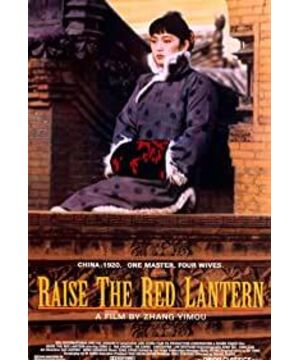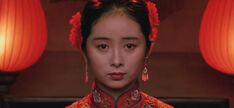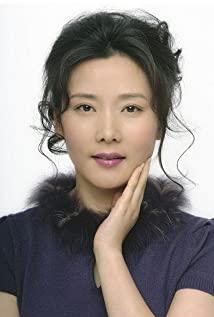The ceremonies and privileged
films are neatly arranged, with exposed and sharp traditional Chinese elements, which are the "rules" that everyone in the house has not loosened, especially the lighting ceremony. In whichever courtyard the master is going, he will place the lantern in front of the courtyard in front of all the wives, then beat his feet and light the lamp. The wife of that courtyard can still order food, and even the servants will be afraid of you. All these ceremonies symbolize and reinforce the privileges in the rules of the game. Through the performance of these ceremonies, human nature is deformed in the struggle for privileges.
The most meaningful thing is to beat your feet. When Song Lian listened to the courtyard, she closed her eyes and imagined that she was beating herself on the foot, and her face even showed an expression of enjoyment. At that time, my friend took a deep breath and said, "It's like being addicted to drugs." This is a very accurate metaphor. The ceremony, especially the privilege brought by the ceremony, made the arrogant "foreign student" who just arrived and gradually indulged in it. The short-term vain satisfaction made her addicted, and Zhuo Yun's desire was continuously expanded under the catalysis of the ceremony. Rituals have become the needs of her life. Even Yan'er, the maid with the least status in the mansion, secretly lights a lamp in her own room, and stubbornly dies because the lantern is burned. The symbolism of the rituals has wrapped the meaning of life in her heart, so she would rather hollow out her life and maintain these rituals with hunger and desperation, almost like a fanaticism.
Symbol - "Master"
Although most of the performance of the film is that women are fighting for their position in the courtyard, and regardless of the film's superb artistic expression, a big difference between it and other 40-episode series is that Unable to see the face of the master. This way of handling makes the symbolic meaning of "Master" extremely strengthened - all women's struggles are tightly wrapped in this face. The wives fight, and it is the faceless master who really sets the rules of the game.
"Master" is very "kind", and he doesn't care about jealousy. In the middle of the night, the third wife made a fuss and sent someone to call the master. In the early morning, she sang a show. The second wife covered her ears and cried and said that Songlian almost cut off her ears and killed her, but the master just smiled, never seriously Go to "processing". "Master" is also very cruel. He doesn't like women to show his face, burns Song Lian's flute at will, seals lamps and even hangs unfaithful women by "house rules".
Such seemingly contradictory characters just consolidate the clear "bottom line" of the rule-makers. How you fight is your business, but any resistance that crosses the line will never be allowed. Like the boss of the studio of "The Truman World", he has huge and absolute authority. Only obedience and awe can exchange for warmth.
The face that cannot be seen clearly symbolizes the materialized personality, and together with the traditional elements such as blowing out the lights, the courtyard house, the dead man's house and other traditional elements that the film takes pains to show, they form a confined and depressing space. With a rigid and inescapable space, time seems to be more and more long and human-consuming, "like a cat, a dog, a bird, even a ghost, but not like a human being."
Off-topic
Tragedy always shakes the heart.
Dou Wentao once said, "Happiness is actually just the relief of pain".
Richard Sannett's "Flesh and Stone" mentions that "pain" has always been rejected by Western civilization as "a product of nature", but it is actually just a normal state of life.
Therefore, perhaps tragedy is closer to life, closer to normalcy. It is only now that I begin to cherish the words that Lao Niu said: at least one book, one movie, one article, or even one sentence every week brings tears to your eyes.
View more about Raise the Red Lantern reviews











